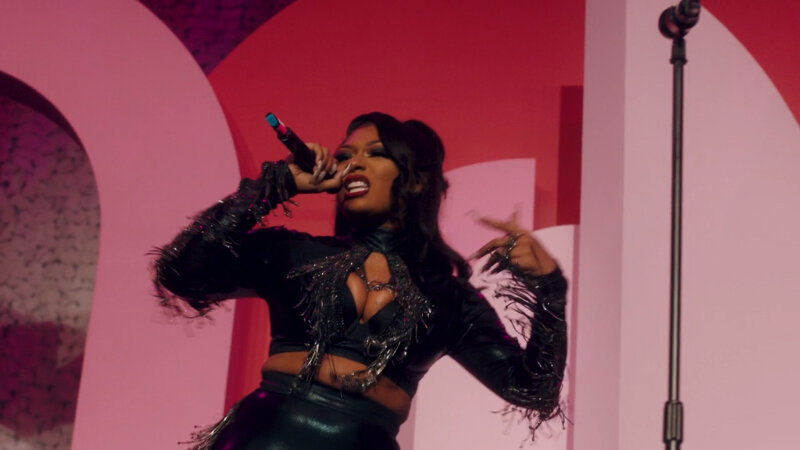Pictured Above: Cardi B (left) and Megan Thee Stallion (right)
By Sabryna Coppola ’22
A&E Writer
Being in quarantine this summer has brought us some great music (and subsequently some great TikTok dances), and Cardi B and Megan Thee Stallion’s duet “WAP” made a huge splash. The song spent two weeks at No. 1 on the Billboard Hot 100 list and has become an instant hit, breaking 93 million streams in its first week. “WAP” has received tons of support from fans of Cardi B and Megan Thee Stallion, but has also drawn the attention of conservative public figures weighing in with their opinions.
The song itself is a sexy, boisterous anthem, celebrating sexuality for anyone with a “WAP” (wet ass p----). The song opens with a sample from Frank Ski’s song “W----- in This House,” looping throughout the song and setting the tone right away. The lyrics are explicit and detailed, putting euphemisms and double entendres to brilliant use.
The music video is visually striking and iconic in its own right, using water to double down on the message, and other symbols of prowess — like tigers — to denote the fierce attitude and intentions of the performers. The video was choreographed by JaQuel Knight who is also known for his work with Beyoncé.
Personally, I loved the song. I love the message, the honest celebration of women’s sexuality and the bold self-awareness of “WAP.” The song has received a lot of attention on the social media app TikTok, sparking a viral dance choreographed by Brian Esperon for viewers to partake in. TikTok influencers, parents and church groups alike have used the song to record their own rendition of Esperon’s dance, embarrass their kids or make up their own parodies.
However, not everyone had such positive feelings about “WAP.” Most notably, political pundit Ben Shapiro made a video on his YouTube channel dissecting the lyrics and reacting to the song. He read the lyrics in his signature monotone, adding his own commentary, which later would inspire remixes with the song performed in his voice. He mocked the song, implying that the sexual confidence portrayed by Cardi B and Megan Thee Stallion would only lead to further objectification of women, and gave the opinion of his wife, a doctor, who apparently advises people with “WAP” to see a doctor.
This response is rather unsurprising from the likes of Shapiro, but parents and critics have denounced the sex-positive anthem as well. The National Review describes the song as “hoary sexual cliches and deification of lowlifes in a music-video milestone,” demonizing both artists for their pasts and shaming them for their sexual content.
This song does what so many songs have done for men in the past. Singing and rapping about sexual prowess is nothing new for men in the music industry. What makes it a problem in “WAP,” besides the fact that it’s two women singing? American culture embraces the sexuality of men while suppressing the same sex positivity for women. The layer of respectability politics overlaid only proves the point more: Rapping about sexuality is only okay when it’s a man, forget two women of color.
Negative reviews and slut-shaming aside, the song has generally been embraced by audiences around the world. It has already been nominated for MTV’s Song of the Summer award, and its star status doesn’t seem to be subsiding. “WAP” makes it clear it is a song made for female empowerment. Its adoration on TikTok makes its generally positive reception obvious, mirroring the popular use of songs by ppcocaine (or Trap Bunny Bubbles) known for their sexual content and inspiring many viral dances.
The National Review writes, “This wanton spectacle is praised as ‘sex positive’ by college-grad journalists who’ve never known any sexual propriety (or the deliciousness of restraint).” The author seems to miss the point that the song was not created for them, or anyone else, but that it’s a form of self-expression and a celebration of the artists’ bodies. As myself, a “college-grad journalist” — if the shoe fits...


